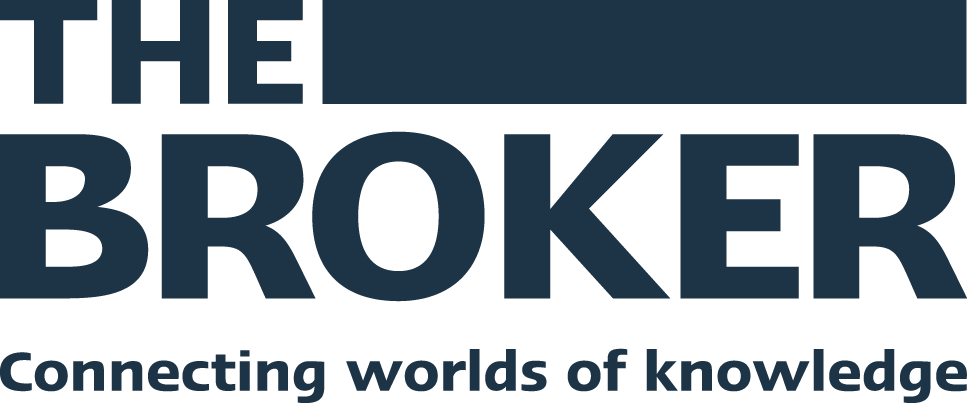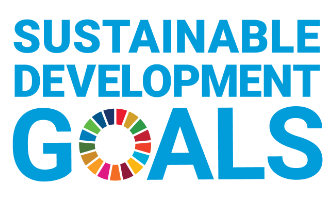IOM’s Dorien Deketele and Nina Staal are sharing lessons learned and success stories of our programmes on migration and development. The article is part of the series published in collaboration with the online knowledge platform The Broker to show that diaspora professionals have the potential to make great contributions to the sustainable development of their countries of origin.
Diaspora Unlocked – Knowledge Transfers & Entrepreneurship
The Netherlands is home to thousands of diaspora professionals and entrepreneurs making a living and contributing to the Dutch economy. Earlier articles that have been published in The Broker’s dossier on diaspora inclusion showed that these professionals have the potential to make great contributions to the sustainable development of their countries of origins as well – a potential, it was found, that often remains largely untapped. Recognizing the diaspora as developmental actors, IOM The Netherlands is currently running two programmes that seek to match the needs of countries of origin to the diaspora expertise in The Netherlands and help diaspora entrepreneurs set up sustainable businesses in these countries. To learn more about these initiatives and the vision of IOM The Netherlands regarding diaspora inclusion and the role of multilateral organizations, The Broker interviewed two of their senior officials: Nina Staal and Dorien Deketele.
The rationale behind diaspora involvement
To encourage diaspora professionals and entrepreneurs to contribute to the economies of not only their new home countries, but also to the sustainable development of their countries of origin, policies and programmes are needed that create conditions for diaspora to do so more effectively – for example by enabling easier overseas business development, investments and knowledge exchange. Apart from governments and non-governmental organisations, however, multilateral organizations also have a role to play in promoting the inclusion of diaspora in development efforts. Recognizing that role, the International Organization for Migration (IOM) hosted its first Annual Diaspora Forum in 2018 under the motto: ‘Diasporas as partners for development in a globalized world’. Currently, the Dutch branch of IOM is putting that motto into practice, with two programmes specifically designed to stimulate diaspora inclusion in development.
To the broader Dutch public, IOM The Netherlands is mostly known for its activities in support of migrants who voluntarily wish to return to their home country or migrate to a third country where permanent residence is guaranteed. However, the organization also focuses on a broader range of support programmes such as family reunification and the integration of newcomers in The Netherlands. Additionally, diaspora inclusion is an essential part of IOM’s Migration and Development programme. The Migration and Development programme is based on two key assumptions: 1) the understanding that members of the diaspora are ‘individuals and members of networks, associations and communities, who have left their countries of origin, but maintain links with their homelands’; and 2) that diaspora groups have indispensable knowledge and skills that they can ‘give back’ to their countries of origin. These assumptions form the rationale behind the design and objectives of the two most recent projects under IOM’s Migration and Development Programme: Connecting Diaspora for Development 2 (CD4D2) and Entrepreneurship by Diaspora for Development (ED4D).
CD4D: Knowledge Transfers by Diaspora Professionals
After an overall successful evaluation of the first phase of the programme in 2019, Connecting Diaspora for Development has now entered Phase 2 (CD4D2). Through the transfer of knowledge and expertise, CD4D2 engages diaspora to support the development of their countries of origin. It does so by matching the priority needs of these countries with the expertise of members of the diaspora residing in The Netherlands and the EU. The combination of their professional expertise, cultural affinity with their country of origin, as well as their commitment to contribute to the development of that country places these diaspora professionals in a unique position. Encouraged and facilitated by the CD4D2 project, they operate as excellent agents for development. After special training by IOM The Netherlands the selected diaspora professionals are linked to institutions in four focus countries: Afghanistan, Iraq, Nigeria and Somalia. Through short physical and online assignments by means of which vital knowledge is effectively transferred, the diaspora experts actively contribute to the reinforcement of the public sector in their country of origin.
The Keihan Foundation: a success story
Among the many stories shared by Nina Staal and Dorien Deketele, the story of Niloufar Rahim stood out. Niloufar is a trained doctor and currently Chair of the Keihan Foundation. This Afghan-Dutch foundation was set up by Afghan students residing in The Netherlands, to build bridges between these two countries. Recognising their shared interest, IOM Netherlands and Keihan joined forces to encourage Afghani diaspora professionals living in The Netherlands to contribute to the development of their country of origin. With the support and training of the two organizations, various professionals travelled to Afghanistan, enhancing the capacities of local hospitals and universities. Among these professionals was Niloufar Rahim. Niloufar has trained medical students and doctors in Kabul in clinical skills and also helped set up skills lab where medical students could practise their surgical skills.
Learn more about Niloufar here or find other inspiring stories like those of Niloufar in this short video.
With a track record of 15 years of initiatives linking diaspora to their countries of origin, the CD4D2 project is by no means new territory for IOM the Netherlands. “Over the years, we have learned how to be more demand-driven through continuous monitoring efforts. We prepare our diaspora experts in line with the needs of the host institutions. In this way, when they leave on assignment, there is actual, demonstrable impact,” Nina Staal (Manager CD4D2) notes. “The whole idea is that diaspora experts are sent to their country of origin to transfer their knowledge and ensure that this knowledge will ‘stick’ after their short term assignment comes to an end. Throughout, we monitor the programme and after assignments, we evaluate whether the identified needs of host institutions are met.” Based on this experience, IOM was able to improve the programme over time and identified a number of elements that are key in facilitating a successful knowledge transfer programme:
- Aligning the needs of host institutions with the expertise of diaspora professionals.
- Prepare both diaspora professionals and host institutions prior to the assignment and manage their expectations. To manage the expectations of both parties, develop goals that are feasible within the time and scope of the assignment, thus avoiding disappointments.
- A flexible design of the programme helps to accommodate the busy schedules of diaspora professionals who often have other professional engagements in the Netherlands. Such flexibility allows, for instance, for virtual and short-duration engagements for the diaspora professionals.
- The Covid-19 pandemic greatly limited the ability of diaspora professionals to conduct physical assignments. Faced with that challenge, IOM has greatly accelerated the use of digital technology for virtual knowledge transfers.
- At times cultural differences between diaspora professionals and host institutions resulted in difficult communication. This was particularly the case with second and third-generation members of the diaspora community. In dealing with this challenge, sensitivity is key.
- Success is not only defined by the direct impact of the project. The CD4D programme is also positively affecting the diaspora community at large. The engagement of selected diaspora professionals enhances agency of the community at large. IOM The Netherlands found, for instance, that diaspora organizations built new linkages and more members of their communities became involved.
Lessons like these are highly valuable for organizations – governmental and non-governmental alike – that also seek to tap into the potential of diaspora professionals and engage them in development efforts. Nina Staal also emphasizes that diaspora inclusion is a profitable investment for both The Netherlands and countries of origin. “Over the past 15 years, we have conducted more than 1500 assignments and we currently see an increase in the requests for diaspora experts in their countries of origin, because their contributions are very effective and relatively cheap and cost-effective because of their voluntary nature. IOM will keep facilitating this process, so that members of the diaspora can continue to contribute to the development of their countries in a way that fits within their lives and expertise.”
"This article is part of the online dossier on diaspora inclusion by The Broker and was originally published on their website"




